With an increased focus on informal care, it is possible to significantly improve the lives of diabetes patients. This is shown by the research project VALID, which has just completed its first phase in Vietnam. According to VALID's project leader, its results can also have a broader impact.
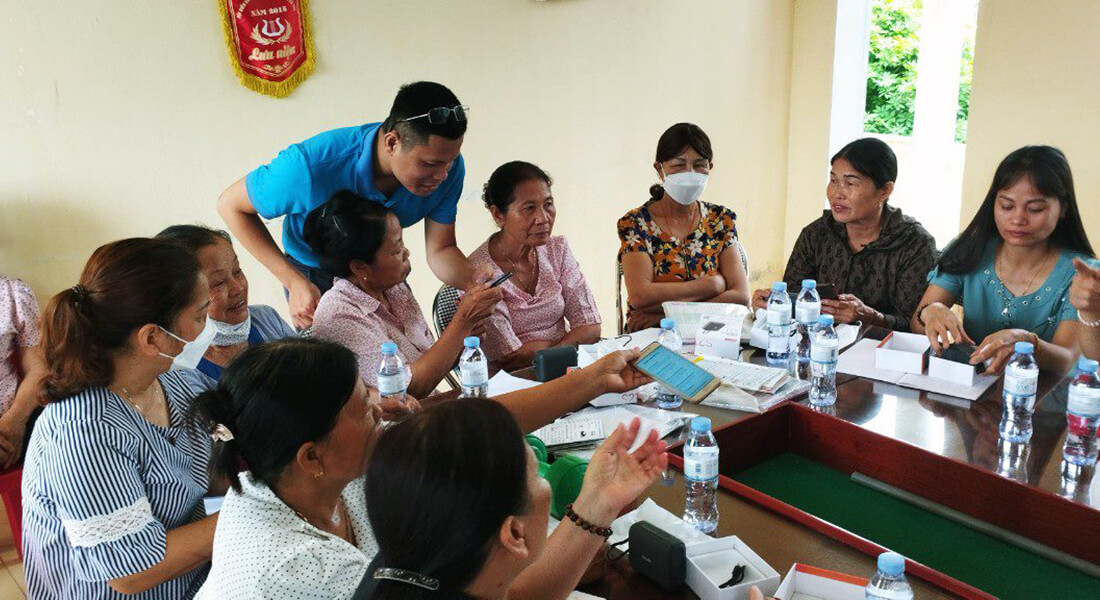
Chronic diseases such as diabetes no longer just pose a challenge in wealthy, Western countries. They are also becoming more prevalent in low- and middle-income countries, such as in Vietnam, which is experiencing a large increase in the number of diabetes patients.
These people are the focus of the VALID research project. In March the project concluded its first phase, VALID I, which has focused on developing the informal support and care in everyday diabetes management. This care can improve the lives of people with diabetes and potentially also help to limit the spread of the disease.
VALID includes interdisciplinary research, capacity building as well as an intervention programme that introduces diabetes clubs and education as part of diabetes care in Thai Binh province in Vietnam.
The project has two phases:
- VALID I (November 2018 - March 2024) explored the forms of informal care that support Vietnamese people with diabetes in their daily lives.
- VALID II (December 2022 - November 2026) focuses on the challenges gestational diabetes mellitus (GDM), a temporary form of diabetes developed during pregnancy, involves for families.
The project is funded by the Danish Ministry of Foreign Affairs and is a collaboration between Thai Binh University of Medicine and Pharmacy (TBUMP), University of Copenhagen (UCPH) and University of Southern Denmark (SDU).
The chronic disease, which previously was relatively unknown in Vietnam, is currently escalating in the Southeast Asian country, with particularly serious consequences for families living far from the hospitals where they can receive treatment.
The rise in the number of diabetes patients is partly due to lifestyle changes - but not just the ones we struggle with in Western countries. The Vietnamese situation is different - in just a few years, the population has gone from being underfed to adequately nourished. This transition is likely also a risk factor due to so-called foetal programming, says project manager Tine Gammeltoft, a professor at the Department of Anthropology at the University of Copenhagen. According to this theory, the foetus' body is 'programmed' before birth to receive a certain amount of nutrition:
"If you were born in the 1980s and 1990s or earlier, when Vietnam experienced enormous poverty, your body is geared to receive very little nutrition. When prosperity then increases so much over the course of the 90s that Vietnam in 2011 becomes a middle-income country and the Vietnamese people get a regular diet, their bodies are not prepared for it. This may be one of the reasons why many are affected by chronic diseases such as diabetes."
Initiatives to support informal care
VALID involves both Danish and Vietnamese researchers (see box) and includes the development of health interventions. A key goal has been to empower both patients and healthcare professionals to manage diabetes through social and professional initiatives at the grassroots level in Vietnam's northern Thai Binh province.
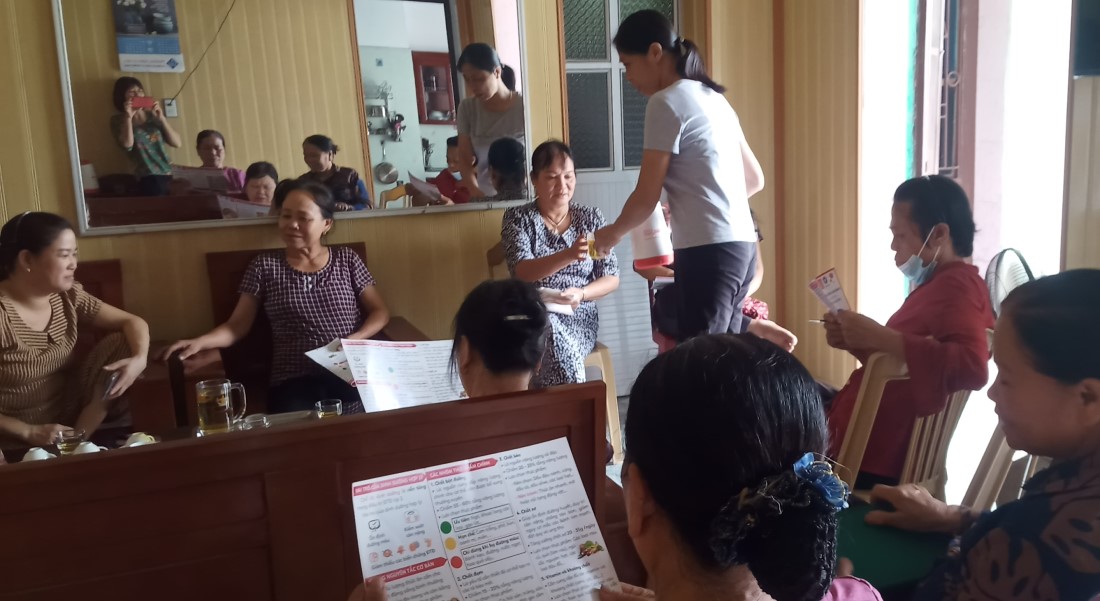
"The social dynamics that arise in the family when someone becomes chronically ill have a huge impact on how well an individual can live with the disease, and how big its consequences will be," explains Tine Gammeltoft.
For example, it is important to pay attention to social aspects of people's lives such as diet and physical activity, as they influence the course of chronic diseases like diabetes. The project has therefore focused on both training Vietnamese health researchers from Thai Binh University Hospital of Medicine and Pharmacy and developing a range of local interventions - including information campaigns and education and clubs for people with diabetes, family caregivers, and professionals.
At the same time, the research team has investigated how informal caregivers, such as family members, support people with diabetes in practice and what those people in turn do to get the care they need. The interventions have had a good effect on helping people manage their disease, but have also documented the challenges that occur when informal care is not adequately supported by primary care in the public healthcare system.
A photo from the project, which won first place in the Danish National Research Foundation's Photo Competition 2023, illustrates how the dynamics of informal care in the home can affect the course of an illness.
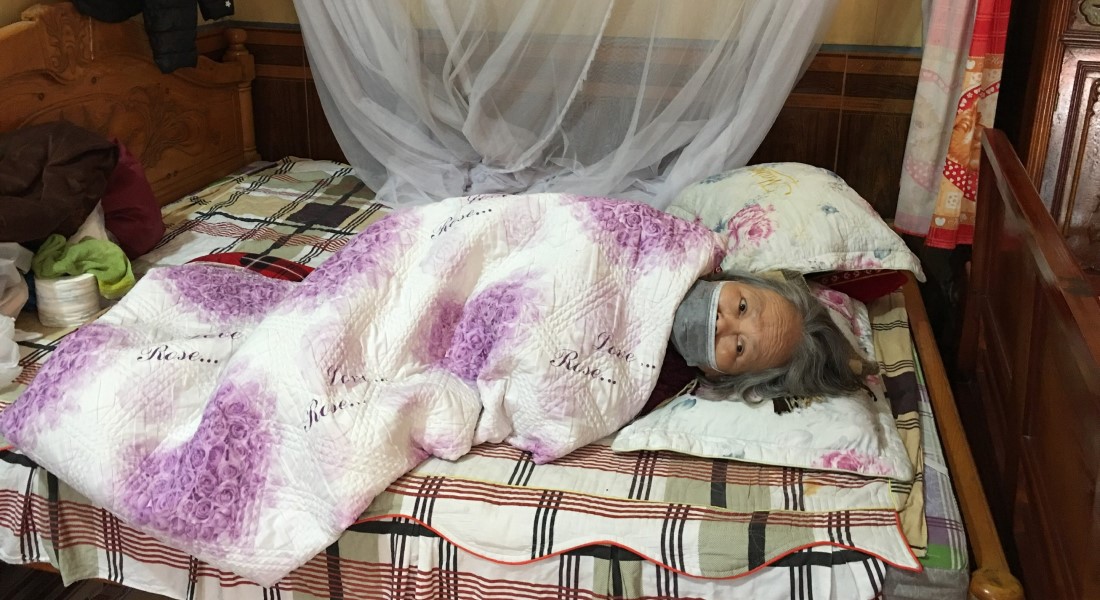
The woman in the photo, Bà Son, has type 2 diabetes. Tine Gammeltoft's Vietnamese colleague, Doctor Dung Vũ, took the photo a few days after Bà Son had one of her legs amputated.
"Bà Son might have been able to manage her illness better if diabetes medicines and check-ups had been available in her local community. She lived in the countryside, and having to travel all the way to the hospital in the city was part of the problem," says Tine Gammeltoft. "It's a much bigger burden for her and the household than if she had been able to go to a local clinic and get help with blood sugar measurements, medication, etc."
Impacting the political agenda
The need to develop care at the grassroots level is reinforced by the commercialisation of primary healthcare in Vietnam. Often, patients can only receive treatment at hospitals, which can be hours away from their households.
While VALID is rooted in Vietnam, it raises perspectives that are relevant in many other places.
With its focus on capacity building and social initiatives, VALID can therefore also influence Vietnam's health policies and ultimately produce new knowledge that is relevant in many other countries.
Tine Gammeltoft points out that chronic conditions have become a global challenge. She believes that much can and should be done for patients locally, as the door to healthcare is not as open in many low- and middle-income countries as it is in Denmark and other more affluent countries.
"In Denmark care is also starting to be pushed from the professional towards the informal. Responsibility is shifting from the state to the family. In Vietnam, where there is not always much professional support, we can see how difficult it is for families to manage chronic illness when the responsibility lies with them, without adequate support from healthcare professionals. While VALID is rooted in Vietnam, it therefore raises perspectives that are relevant in many other places."
The benefits of VALID's research
So far, the researchers have not been able to document changes in blood sugar levels after the interventions, which, according to Tine Gammeltoft, may be related to the limitations created by the COVID-19 pandemic.
"COVID hit people with chronic diseases hard. With villages shut down and everyone staying at home, people with diabetes didn't go to the hospital for regular check-ups, nor did they get the exercise that is essential to manage their diabetes on a daily basis."
You can clearly see the value of your research here. There is a concrete output for the people you work with.
Despite this challenge, VALID's initiatives have had a noticeable impact on the local population in Thai Binh province. The research has documented that participants in VALID's interventions have been able to manage their diabetes better on several parameters and become more open about their disease.
"You can clearly see the value of your research here. There is a concrete output for the people you work with," says Amalie Vestergaard, who works on the project as a student assistant.
The human perspective
As part of VALID's capacity building, Amalie Vestergaard has trained the health researchers from Thai Binh University in ethnographic research methods. In her opinion, the interdisciplinary collaboration between health and anthropological research has been particularly important in developing the project's initiatives.
"The project definitely wouldn't be able to show the same results if it wasn't linked to the university hospital. We know that the hospital is taking the initiatives we developed with VALID I to their diabetic patients. Perhaps the project can even inspire the treatment of other diseases," she says.
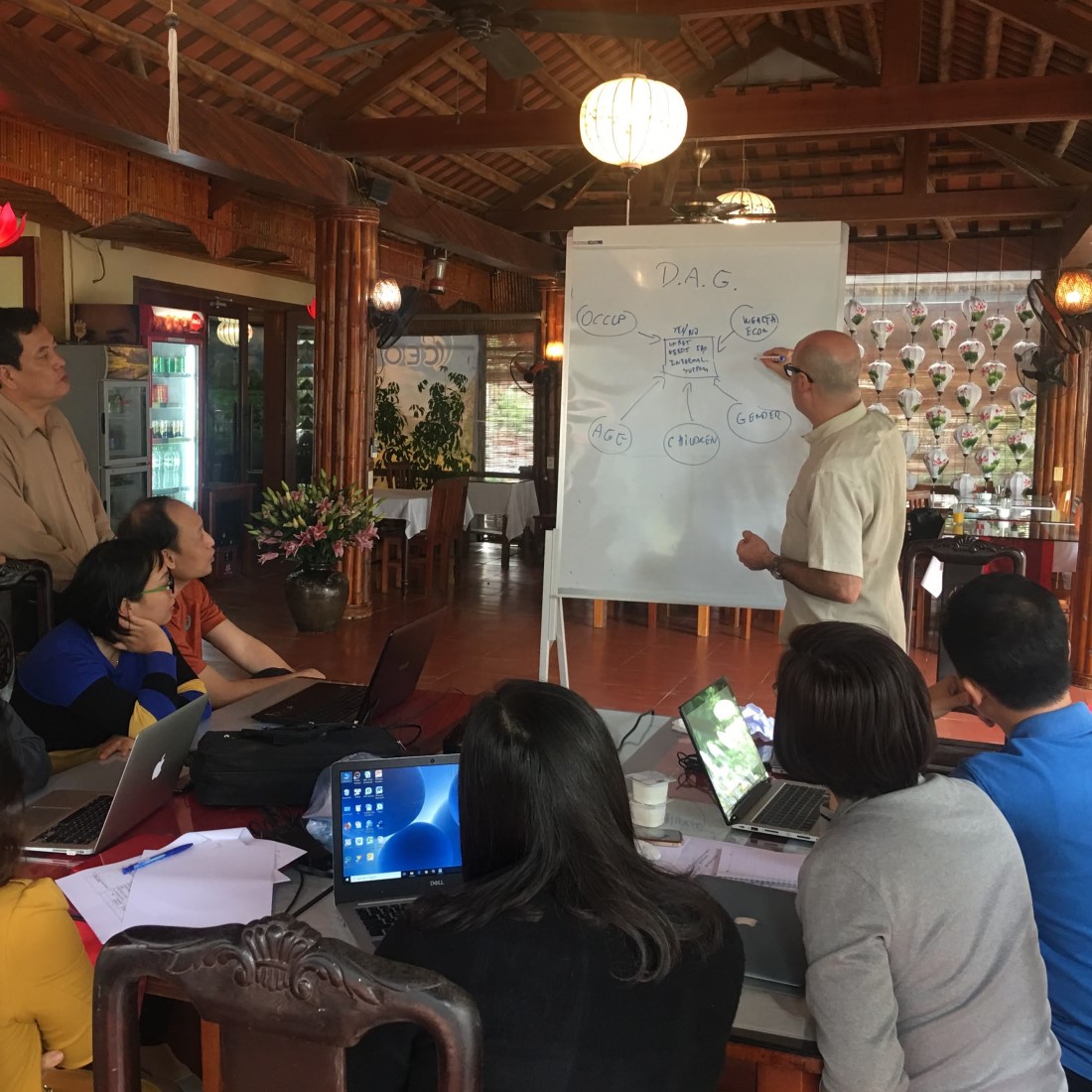
Anthropology plays a crucial role here, as it contributes a human perspective to medical efforts, says Tine Gammeltoft.
"The human aspect is often lost in medical treatment - for both patients and practitioners. When practitioners make recommendations to their patients, how are they followed in practice? That's what anthropology can show us. Understanding why people act the way they do is important, and so is the capacity building that the project has enabled."
Thai Binh University now wants to bring the anthropological perspective to their own students - and Dung Vũ will be teaching qualitative research, including ethnographic research, to faculty members and postgraduate students.
In addition, the collaboration between the University of Copenhagen and Thai Binh University of Medicine and Pharmacy continues in a new phase of the project, VALID II, which focuses on gestational diabetes (diabetes developed during pregnancy).
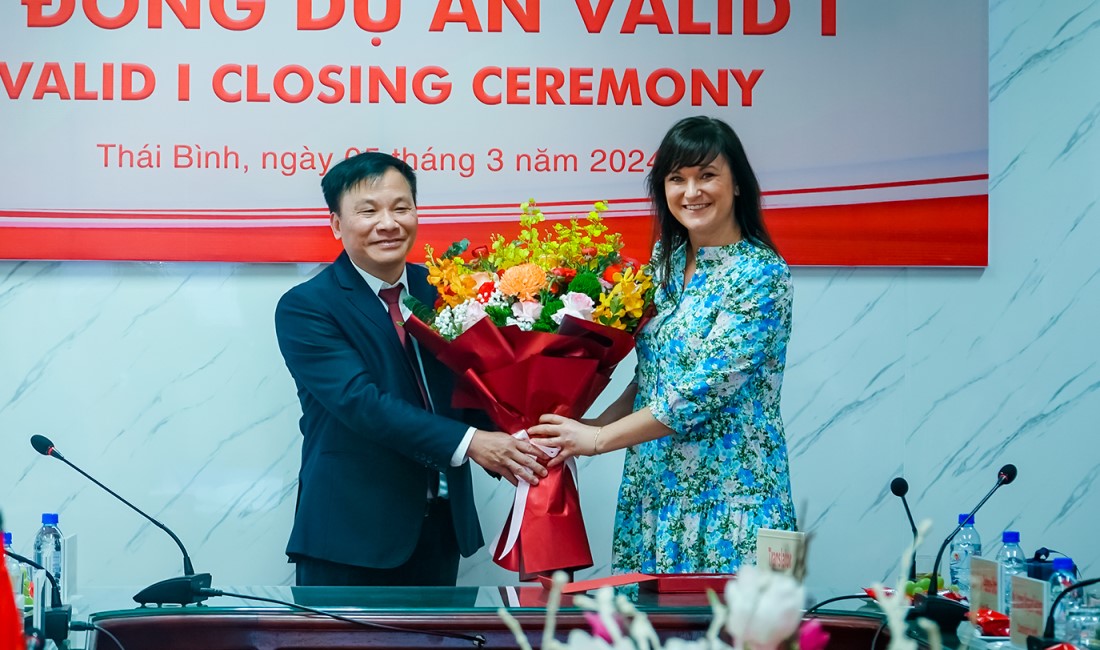
Collaboration with the Ministry of Foreign Affairs
VALID is carried out in collaboration with the Danish-Vietnamese Strategic Sector Cooperation project 'Strengthening the Frontline Grassroots Health Worker'.
In early March 2024, the Danish Minister of the Interior and Health Sophie Løhde visited Thai Binh University of Medicine and Pharmacy, the research team behind VALID, and the project's diabetes clubs. The purpose of the visit was to strengthen the Danish-Vietnamese cooperation in the health sector.






